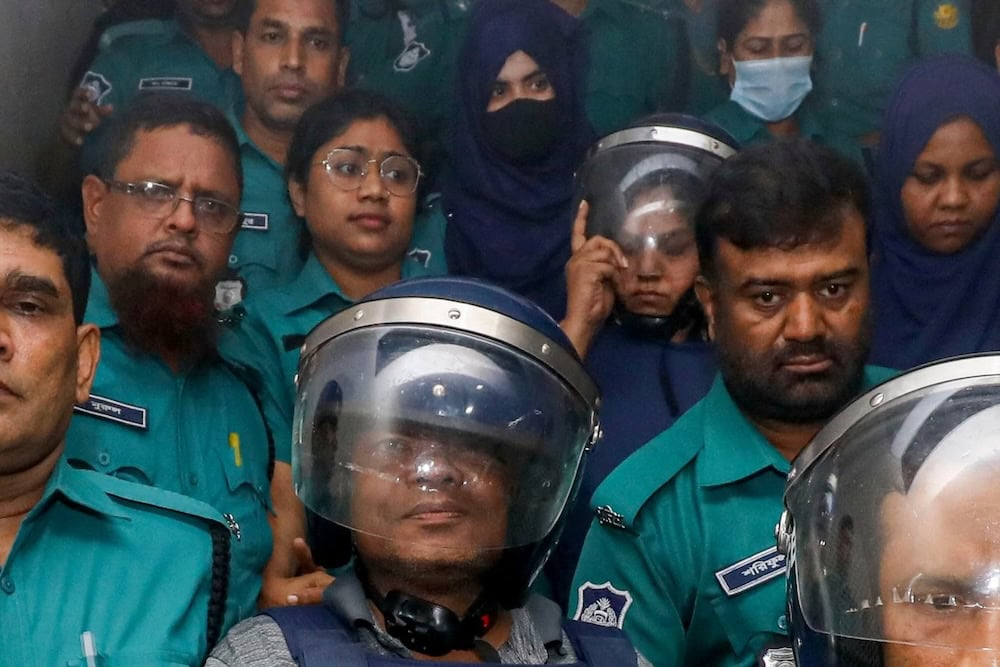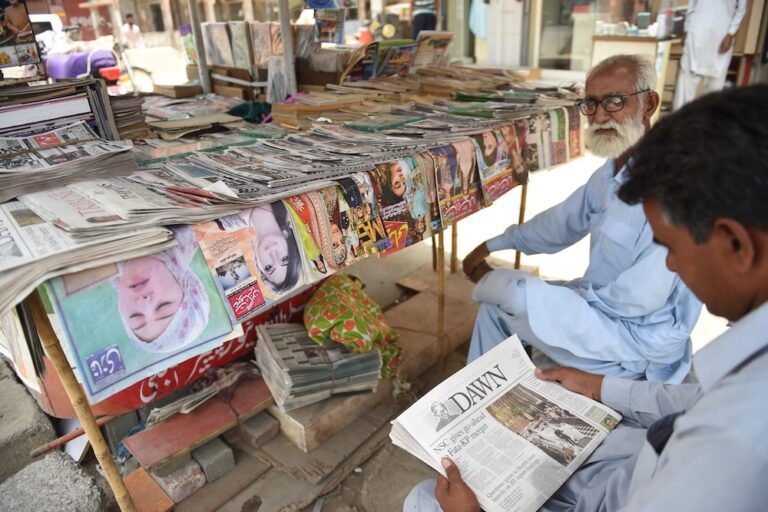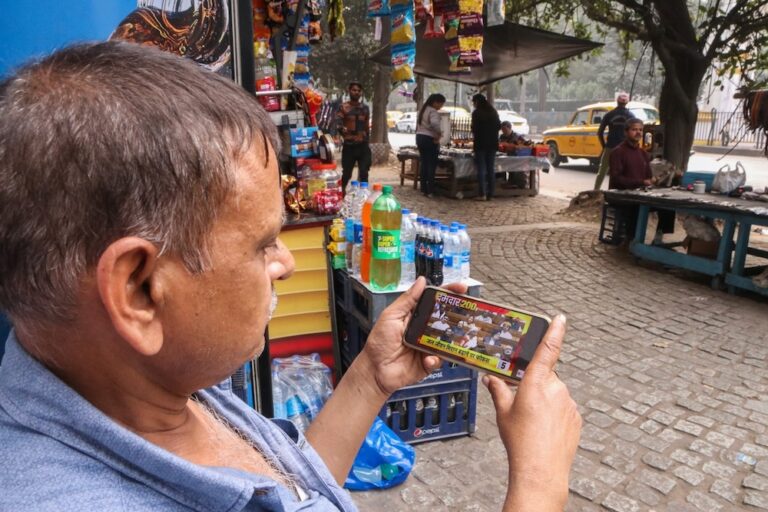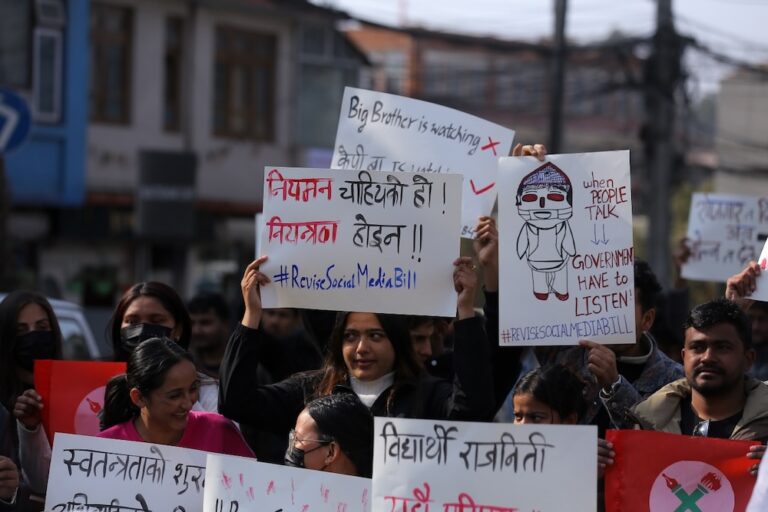October 2024 in Asia-Pacific: A free expression and civic space round-up produced by IFEX's regional editor Mong Palatino, based on IFEX member reports and news from the region.
Bangladesh interim authorities urged to uphold media freedom, Myanmar and China tied with having the world’s worst environment for internet freedom, journalists harassed and attacked across Asia, and a Pacific media group marks a milestone.
Bangladesh: “Structural reforms are necessary”
Two months after the youth-led “Monsoon Revolution” ousted the government of former Prime Minister Sheikh Hasina, Reporters Without Borders reiterated its call to Bangladesh’s interim authorities to prioritise the restoration of press freedom. It added that “structural reforms are necessary to turn the repressive page of the previous government.” It urged the interim government to implement the following reform proposals:
- Prosecute those responsible for the murders of the five journalists killed during the Monsoon Revolution;
- Drop the unjust prosecutions against journalists launched by the previous government;
- Repeal the draconian Cyber Security Act, the Digital Security Act, and the Information and Communication Technologies Act;
- Guarantee every journalist’s right not to be subjected to arbitrary detention and prosecution, and their right to presumed innocence in the event of legal proceedings;
- Expedite the legal proceedings of all unresolved cases of murdered journalists.
Meanwhile, the Committee to Protect Journalists called out the attention of the authorities about the detention and harassment of journalists who are perceived to be supportive of the previous government.
Women facing harassment, discrimination and bullying
In Australia, ABC reporter Anushri Sood was strongly rebuked in a press conference by opposition leader Peter Dutton, who disapproved of her questioning him about the government’s listing of Hezbollah as a terrorist group. The Media, Entertainment & Arts Alliance expressed dismay over the politician’s behaviour and the subsequent silence of ABC’s management.
“It is a journalist’s right and duty to question how policies are made on issues impacting the Australian public and wider global community. We support our members’ rights to hold power to account by asking honest and fair questions. The ABC’s public silence on the intimidation of their journalist, a woman of colour, further perpetuates the racism an internal review issued on the same day highlighted.”
In Afghanistan, women who had served in the police prior to the Taliban takeover reported experiencing discrimination and violence forcing many of them to hide or flee to another country. In a report released by Human Rights Watch (HRW), these women said that they received intimidating phone calls from Taliban officials, their homes were targeted with “abusive searches”, and some of their former colleagues were even killed because their police work had allegedly “shamed” their families.
A former policewoman narrated her situation in an interview with HRW. “Whenever I go to [the] bazaar, I wear a mask and glasses so no one can recognize me… If people find out, they might rat me out to the Taliban that I used to work for the police.”
HRW reminded foreign governments that encouraged Afghanistan to hire and train women in the police force, to assist those who are seeking asylum and refugee settlement.
In Myanmar, a study by Data for Myanmar revealed that 600 women have been arrested since the February 2021 coup for criticising the junta on social media. The report noted that the arrests followed online surveillance and extensive phone checks on checkpoints.
World’s worst environments for internet freedom
No surprise here. China and Myanmar are the world’s worst environments for internet freedom according to the latest “Freedom on the Net” report by Freedom House.
The report highlighted Myanmar’s continued imposition of “localized internet-access blocks, data price hikes, online trolling, and arbitrary prosecutions resulting in long prison sentences.” After the military grabbed power, it imposed absolute media censorship and restricted access to the internet. This year it criminalised the use of virtual private networks in a desperate and ruthless attempt to quell dissent.
“This is a story of how the military has launched measure after measure that is aimed at cutting Myanmar’s people off from a free and open Internet,” said Kian Vesteinsson, the report’s co-author.
For a decade, China has ranked the lowest in terms of upholding human rights in the digital sphere. This year is no different with its “great firewall” still intact and enhanced with more repressive features.
“People face severe legal and extralegal repercussions for online activities like sharing news stories, talking about their religious beliefs, and communicating with family members and others overseas. Authorities wield immense power over the technology industry, deploying regulatory investigations and removal orders to enforce government narratives,” the report noted.
China’s Ministry of Foreign Affairs spokeswoman Mao Ning dismissed the report as “entirely baseless and made with ulterior motives.”
In brief: Journalists under attack
Cambodian journalist Mech Dara was arrested and detained for three weeks for alleged incitement over social media posts that “cause social disorder or confusion.” Civil society groups said that Dara’s arrest was “a clear attempt to silence a brave journalist whose investigative journalism has routinely called for accountability in cases of human rights violations.” His investigative reporting in 2023 exposed the role of prominent officials in a cyber scam that victimised thousands across Asia. He was released on bail but media groups continue to press for the dropping of charges against him.
Protests organised by Pakistan’s opposition political party, the Pakistan Tehreek-e-Insaf (PTI), turned violent in September and October. Several journalists who were covering these events were injured; some even assaulted by the police. Pakistan Press Foundation (PPF) emphasised that this was not the first time that journalists were targeted by both the police and political party members.
“The recurring mistreatment of media professionals during politically charged events highlights an alarming trend where both law enforcement and political party members have disregarded press freedom and the role that media plays in covering key developments.”
PPF urged authorities to “hold the perpetrators accountable, initiate comprehensive investigations, and create protective mechanisms for journalists.”
Papua-based media outlet Jujur Bicara, popularly known as Jubi, was attacked with a Molotov bomb in Indonesia. Jubi is known for its critical reporting in Papua, a region annexed by Indonesia in 1963.
Jubi editor Victor Mambor, whose house was also bombed in 2023, condemned the attack. “The target is clear: the facilities we own and to terrorize journalism. This is a criminal act.”
IFEX member the Alliance of Independent Journalists emphasised that “it is critical to ensure that the media can operate without fear of retribution.”
Pacific Islands News Association turns 50
Eighty members from 11 Pacific nations participated in the 7th Pacific Islands News Association (PINA) Summit in Niue as the group marked its 50th anniversary. Reflecting on the legacy of PINA, incoming President Kalafi Moala from Tonga recognised the “watchdog role of media in speaking truth to power.”
“Independent media with press freedom values exposed the irregularities of decision making and corrupt behaviour in leadership,” he wrote in a two-part blog piece.
He echoed the findings of a recent regional survey about economic pressures faced by media outlets and emphasised the need to preserve the independence of a press struggling to survive in a changing landscape.
“Independence and media freedom are inseparable values. Without independence, freedom is lost and losing both means losing our true purpose, rendering us ineffective in serving the people we are meant to support.”
Finally, he laid down the key tasks of the association. “PINA will need to be more active in conducting subregional gatherings to strengthen media, as well as reaching out to emerging regional organisations to partner with as we take Pacific media into the future.”



